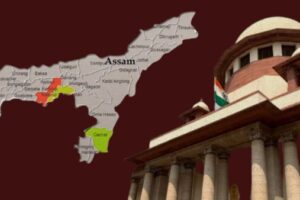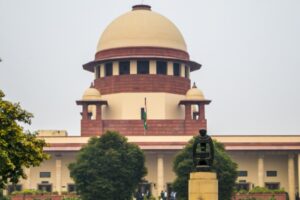
“Namesake” refers to a person or thing that has the same name as another.
The Supreme Court of India has refused to entertain a public interest litigation, which sought a ban of “namesake” candidates in the contesting in elections.
The PIL’s Demands
Public Interest Litigation was seeking directions to be issued to prohibit namesake/duplicate candidates from contesting elections as independent candidates in order to harm the chances of other candidates.
Namesake candidates is an old political strategy wherein rival parties endorse candidates who share names with influential figures. The aim is to create confusion among voters and sway them to vote for the namesakes, consequently undermining the influence of the prominent figures.
This petition was filed by Sabu Stephen and his argument for issuing such directives was that often on “high profile seats” namesake candidates are placed, with a motive of misleading the voters. The petitioner emphasized that frequently, these ‘namesake’ candidates result in the defeat of prominent candidates by a narrow margin. Through this petition the petitioner sought directions to be issued to the election commission of India, to take urgent steps, and stop the trend of namesake candidates in the elections. The petitioner further said that this step would be in the interest of the voters and will help in conducting free and fair elections.
Court’s Ruling
As soon as this matter was heard, Justice Gavai remarked that, “you already know the fate of this case.”
The bench questioned the petitioner Sabu Steephen that if a person is born with a name similar to prominent personalities, like Rahul Gandhi or Lalu Prasad Yadav, then should they be nbarred from elections? And if so, would this not amount to infringing their constitutional rights?
Although the petitioner clarified that he wasn’t asserting that all independent candidates are fraudulent or suggesting that they lack the right to contest, he advocated for the implementation of an efficient scrutiny process and suitable mechanism to prevent namesake candidates.
Nevertheless, as the Bench remained unconvinced to consider the petition, the Counsel opted to withdraw it upon request. Consequently, the Court granted permission for withdrawal, leading to the dismissal of the petition.





